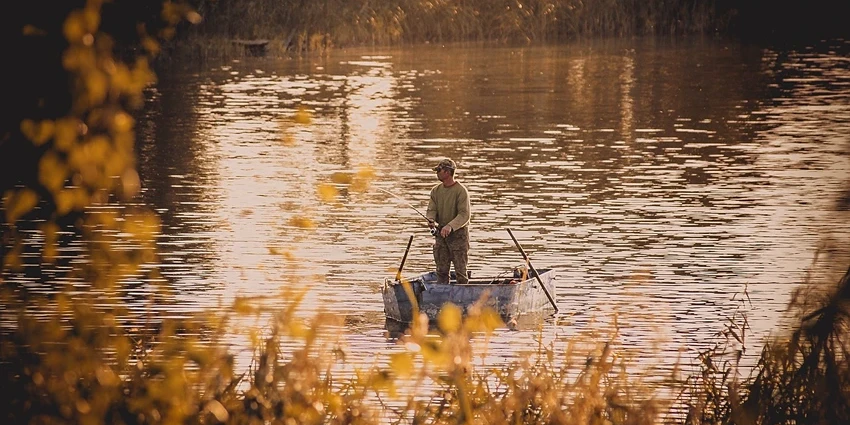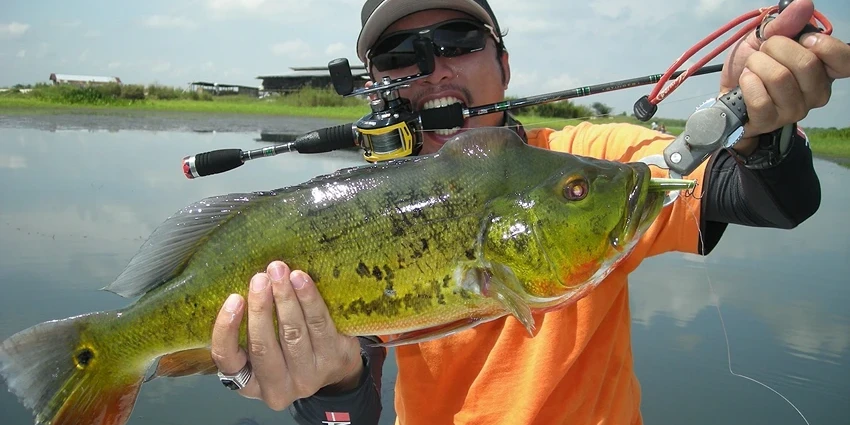All products were chosen independently by our editorial team. This review contains affiliate links and we may receive a commission for purchases made. Please read our affiliates FAQ page to find out more.
Fishing isn’t just about the thrill of the catch; it’s a journey of patience, skill, and continuous learning. Keeping a fishing journal is an invaluable tool for any angler looking to improve their game. It’s not just about recording your catches; it’s about understanding patterns, learning from experiences, and growing as an angler. In this article, we’ll dive into the world of fishing journal keeping, focusing on freshwater fishing tips.
Jump to:
The Art of Keeping a Fishing Journal
Why Keep a Fishing Journal?
A fishing journal is more than a list of catches; it’s a narrative of your fishing journey. It helps you:
- Track Your Progress: See how you’ve improved over time.
- Understand Fish Behavior: Learn what works and what doesn’t in different conditions.
- Plan Future Trips: Use past experiences to make informed decisions.
Getting Started with Your Fishing Log
Choosing the Right Format
Your fishing log can be as simple as a notebook or as sophisticated as a digital app. Here are some popular apps to consider:
- ANGLR: Automates data collection like GPS route and weather conditions.
- FishAngler: Offers mapping, weather forecasts, and a global angling community.
- Fishbrain: Known for its large social network and fishing forecasts.
What to Record in Your Log
Your log should include:
- Date, Time, and Location: Basic yet crucial information.
- Weather Conditions: Air and water temperature, wind direction, and speed.
- Details of the Catch: Species, size, number, and tackle used.
Table 1: Essential Data for Fishing Logs
| Data Type | Description |
| Date & Time | When did you fish? |
| Location | Where did you fish? |
| Weather | Air and water temperature, wind conditions |
| Catch Details | Species, size, number, tackle used |
Logging the Essentials
Honesty in Your Log
The value of your log lies in its accuracy. Be honest about your experiences for a true reflection of your skills and progress.
Analyzing Your Log
Look for patterns in your log. Do you catch more during certain weather conditions? Are some locations more fruitful than others?
Table 2: Analyzing Fishing Log Patterns
| Factor | Observation |
| Weather | Best conditions for specific species |
| Location | Most productive fishing spots |
| Tackle | Most effective lures and baits |
Advanced Tips for Fishing Journal Keeping
Leveraging Technology
Modern technology can significantly enhance your journal keeping. Apps like Fishidy and FishTrack offer detailed waterway databases and sea surface temperature charts, respectively.
Integrating Environmental Factors
Understanding the environment is key to successful fishing. Pay attention to:
- Fish Behavior: How do different species react to changes in their habitat?
- Seasonal Variations: How do weather and water conditions affect fish activity?

Personalizing Your Fishing Journal
Your journal is a personal document. Feel free to add anecdotes and reflections on your fishing trips. It’s not just about the fish you catch; it’s about the experiences you gain.
Register for our latest in-depth reviews and product round-ups from the experts
Enter your email address below to receive our twice monthly reviews emails.
By entering your details, you are agreeing to our terms and conditions and privacy policy. You can unsubscribe at any time.
Advanced Strategies in Fishing Journal Keeping
Utilizing Technology for Enhanced Logging
Modern technology offers a plethora of tools to enhance your fishing journal. Apps like Fishidy provide detailed information about water bodies, while FishTrack is excellent for deep-sea fishing enthusiasts.
Table 3: Technology Tools for Fishing Journals
| App Name | Features |
| Fishidy | Waterway database, weather forecasts, catch logging |
| FishTrack | Sea surface temperature, chlorophyll charts, tide info |
Data Analysis and Pattern Recognition
Analyzing your log can reveal valuable insights. Look for correlations between your catches and various environmental factors.
Table 4: Data Analysis in Fishing Logs
| Environmental Factor | Insight Gained |
| Weather Conditions | Optimal conditions for specific fish species |
| Moon Phases | Best fishing times related to lunar cycles |
| Water Temperature | Preferred temperature ranges for different species |
Integrating Environmental and Biological Factors
Understanding Fish Behavior and Habitat
Knowing how fish behave in different environments can significantly improve your fishing success. Record observations about fish behavior in relation to changes in their habitat.
Seasonal Variations and Weather Impact
Fish activity varies with seasons and weather conditions. Your journal should reflect these changes to help you plan future fishing trips.
Table 5: Seasonal Variations and Fish Activity
| Season | Typical Fish Behavior |
| Spring | Increased activity, spawning season for many species |
| Summer | Deeper water fishing, early morning and late evening bites |
| Autumn | Pre-winter feeding frenzy, good shore fishing |
| Winter | Slower metabolism, ice fishing opportunities |
Personalizing Your Fishing Journal
Incorporating Personal Anecdotes
Your journal is a personal story of your fishing adventures. Include anecdotes and personal experiences to make it more engaging and memorable.
The Role of a Journal in Personal Growth
Reflect on how fishing impacts your life. Your journal can be a testament to personal growth, patience, and perseverance.
Frequently Asked Questions
Ideally, update your journal after every fishing trip to ensure accuracy and detail.
Absolutely. Analyzing your journal helps identify successful strategies and areas for improvement.
Yes, even casual anglers can benefit from understanding their fishing patterns and experiences.
Look for patterns in weather, location, and fish behavior to make informed decisions about future trips.
Yes, documenting unsuccessful trips is crucial for learning and understanding what doesn’t work.
Martin Cochran, renowned for his expertise in deep-sea fishing and marine wildlife, plays a pivotal role at Fresh Catch Daily. His adventures across various oceans have equipped him with unique insights and techniques, enriching our platform with diverse and engaging content for fishing enthusiasts.







